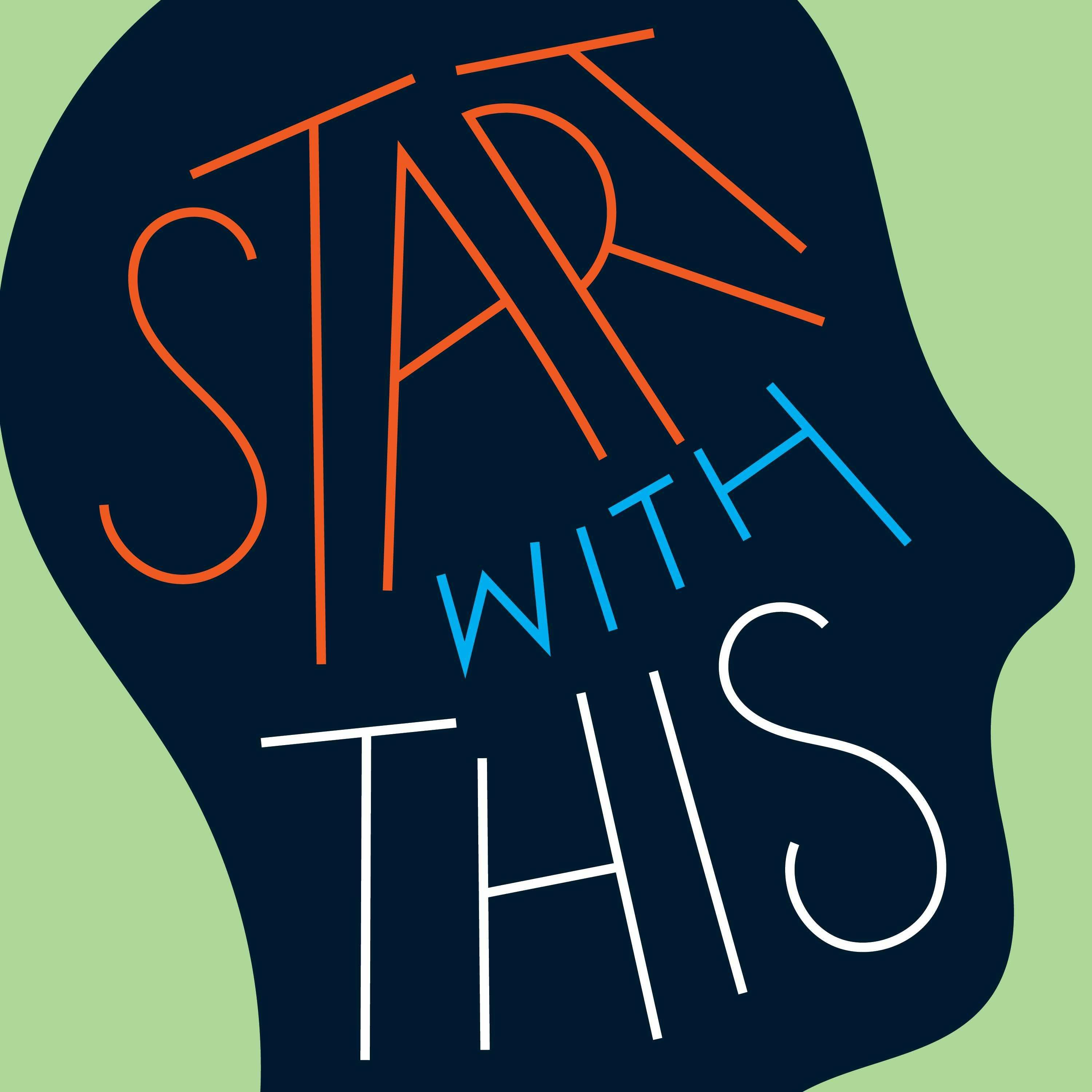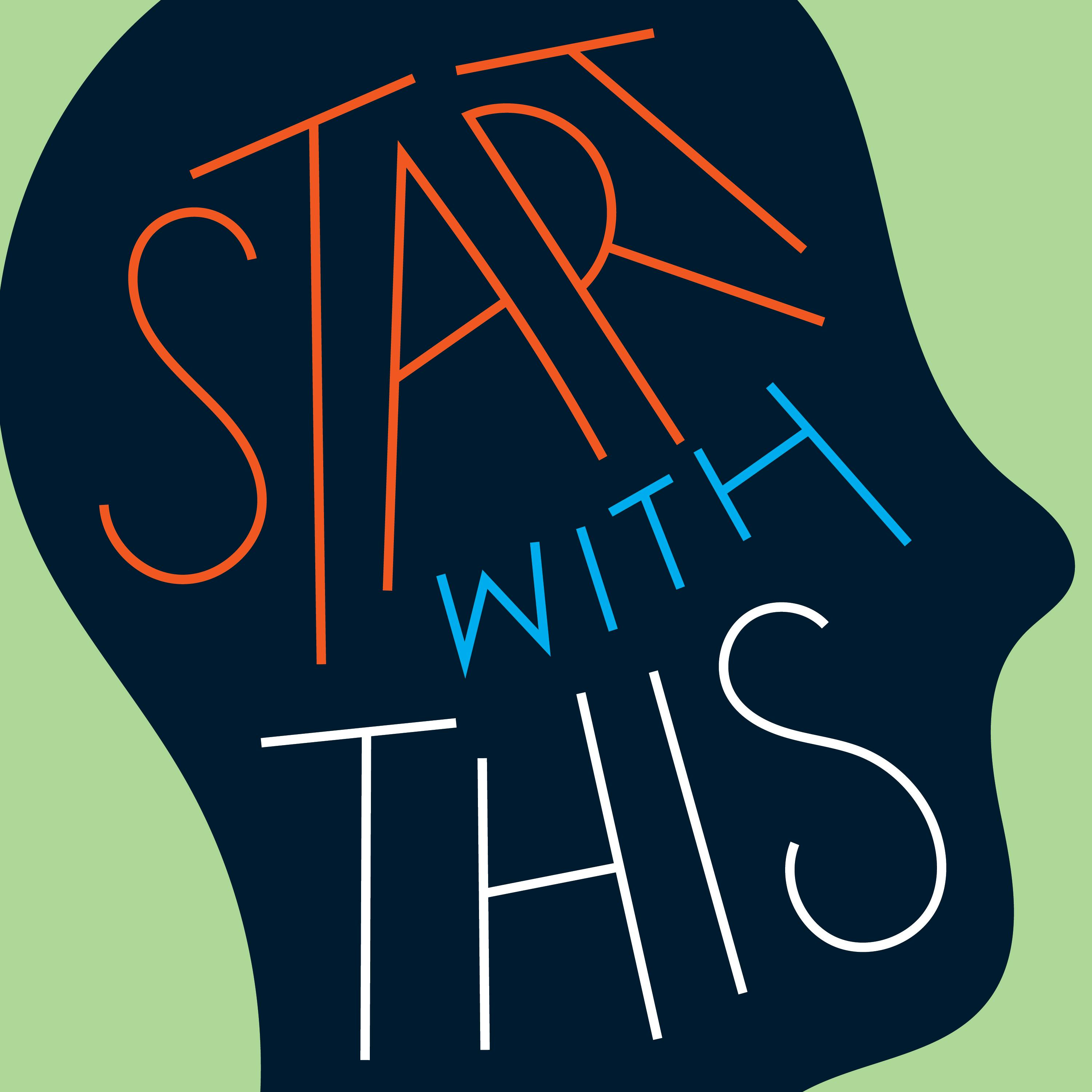
Start With This
Night Vale PresentsThe creators of Welcome to Night Vale Jeffrey Cranor and Joseph Fink believe the only bad writing is not writing. Start With This is a podcast gone creativity playground designed to put your ideas in motion. Each episode centers around a writing topic. Then they give listeners two short assignments: something to consume and something to create. Make something—anything. Then make something else.
The creators of Welcome to Night Vale Jeffrey Cranor and Joseph Fink believe the only bad writing is not writing. Start With This is a podcast gone creativity playground designed to put your ideas in motion. Each episode centers around a writing topic. Then they give listeners two short assignments: something to consume and something to create. Make something—anything. Then make something else.





























































